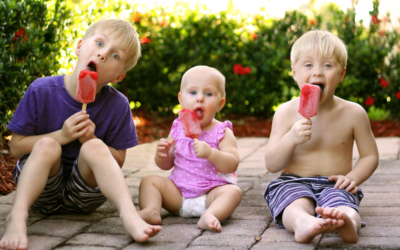Resources & Education
Adoption-related resources and information
Openness
Openness in adoption is used to describe the ongoing relationship and contact between the biological family and/or significant people in a child’s life prior to their adoption and the adoptive family (including the child) after the adoption is finalized. It is about maintaining positive, child-centred relationships. No matter where a child is adopted from, these relationships are part of a child’s identity.
Adoption & Sibling Relationships: What Children Have Taught Me
Openness in adoption is used to describe the ongoing relationship and contact between the biological family and/or significant people in a child’s life prior to their adoption and the adoptive family (including the child) after the adoption is finalized.
Facilitated Openness Can Benefit Children Adopted from Care
Helping a foster or adopted child stay in contact with members of his birth family can be time-consuming and sometimes emotionally draining. Facilitated contact, however, can be valuable for children. Openness in adoption tends to provoke some worry and many questions for prospective adoptive families and birth parents.
Helping Children Connect with Birth Parents
The biggest issue facing all adopted people is achieving a sense of identity that requires some connection to their biological parents. Understanding where you came from—all of who you are—helps you to be whole.This approach to openness takes hard work and practice.The biggest issue facing all adopted people is achieving a sense of identity that requires some connection to their biological parents.
7 Core Issues in Adoption and Permanency
The 7 core issues in adoption are identified as: Loss, Rejection, Guilt/Shame, Grief, Identity, Intimacy and Mastery & Contro. lAwareness of these Seven Core Issues and the challenges and their accompanying tasks can help constellation members better understand how the experience of adoption/permanency has impacted their life and relationships.
Grief & Loss
All members of the adoption constellation can experience grief and loss at any given stage in their adoption journey. Many of our adopted children experience ambiguous loss. Adoptive parents need to exercise skill and sensitivity in dealing with their children and provide the necessary support to ensure children emerge from this stage as self-assured and confident adults.
Grief, Loss, and Bereavement
All members of the adoption constellation can experience grief and loss at any given stage in their adoption journey. No one way of grieving is better than any other. Some people are more emotional and dive into their feelings. Others are stoic and may seek distraction from dwelling on an unchangeable fact of living. Every individual has unique needs when coping with loss..
5 Stages of Grief
All members of the adoption constellation can experience grief and loss at any given stage in their adoption journey.
Boundaries & Keeping Families Safe
Transitions are a common and often challenging aspect for children who are unable to be cared for by their family of origin. Moving a child into a new home is a life altering event. Transitions can be experienced many times and in many ways by the time (and if) a child-youth reaches the transition stage to an adoptive family and permanent home.Dr John Taylor guides us through some key strategies for teaching healthy boundaries and keeping children safe
Transitioning Children From Foster Care to Adoption
Transitions are a common and often challenging aspect for children who are unable to be cared for by their family of origin.Children adopted by their foster parents may have lived with their families for a long time, but they might need help when their status changes from foster child to permanent family member. Find resources in this section to help foster/adoptive parents guide children through this transition.
Factors Influencing Adoption Reunions
There are a number of factors that may influence the possibility of a reunion taking place. Some of those factors also influence the intensity or character of adoption reunion experiences and relationships after reunion. These are some of the factors that may influence reunion outcomes. Learn more.
Tips for a Successful Reunion
Search and reunion can be complicated whether you are an adoptee, a birth parent, or an adoptive parent.By understanding the stages and the process of adoption reunion and some of the pitfalls, you will ensure a better outcome


